Steve Boxer contends that gamers won’t find a better game released in 2021 than the remastered version of BioWare’s classic first three Mass Effect titles.
This may be somewhat controversial, but hear me out. Yes, we’re just half-way through 2021, but I believe we’ve already been treated to the game of the year. Not only that, it’s a mere remaster of three enormously familiar action-RPGs released between 2007 and 2012. I refer, of course, to Mass Effect: Legendary Edition.
I’m calling it, right now – even with the likes of Halo Infinite, Psychonauts 2, Far Cry 6, Guardians of the Galaxy, Forza Horizon 5 and Battlefield 2042 still to come, Mass Effect Legendary Edition is the best game you will be able to buy in 2021.
Admittedly, my play-through of Mass Effect Legendary Edition was tinged with an element of sadness – that the once-great BioWare should have been reduced to making microtransaction-chasing shite like Anthem (although it bombed so badly that, as far as anyone knows, they never managed to shoehorn those loot boxes in), and that the developer’s terminal decline was already evident in 2017, when Mass Effect: Andromeda arrived.
But hey, the guy now holding the Mass Effect reins is adamant that he wants to make BioWare great again. Anyway, any hint of negativity evaporated the instant I installed Legendary Edition on my Xbox Series X, downloaded the first Mass Effect and booted it up.
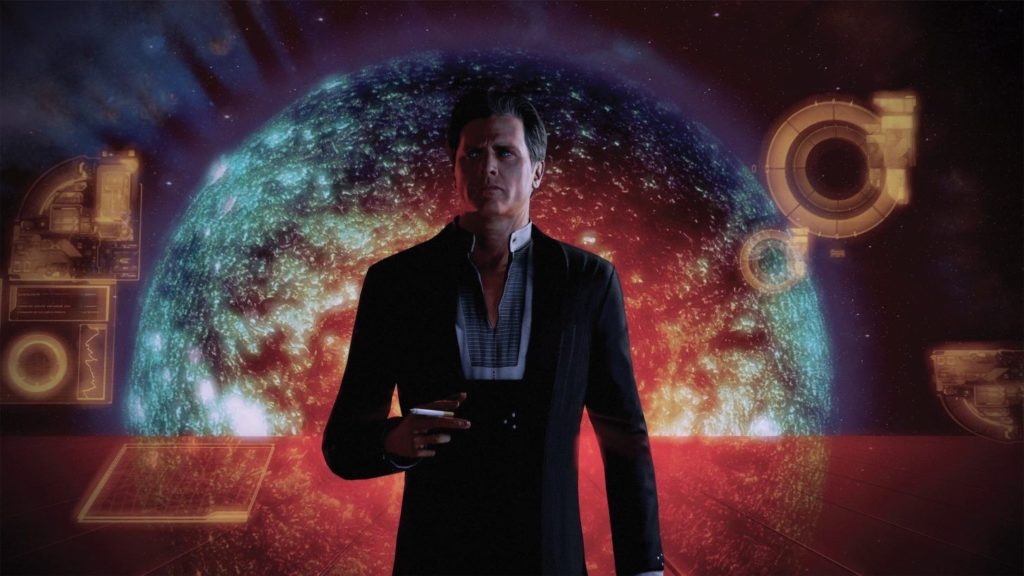
Surprise revelations
I thought I remembered all three games pretty well, although playing them one after the other would be a new and utterly wonderful experience. But throughout the course of playing them, I was frequently surprised by things I’d either forgotten or hadn’t noticed first time around.
The ability to play the first three Mass Effect games consecutively, as if they were one elongated story, also proved revelatory. It’s not often you get to see a games franchise acquire form, establish itself and mature, especially when it also offers a snapshot of a developer at the absolute top of its game. It’s worth noting that BioWare’s founders and leading lights Ray Muzyka and Greg Zeschuk were still at the helm of the company when Mass Effect 3 was released, even though they had sold BioWare into the gaping corporate maw of Electronic Arts in 2009, a year before Mass Effect 2 came out.
It’s even rarer to be able to assess a trilogy via remastered versions of all three games, crunching down, although not entirely eliminating, the glaring technical differences that, inevitably, originally existed between them. The overall effect is absolutely delightful and unexpectedly illuminating, as new mechanics and conventions are added and sometimes removed again. The remasters in Mass Effect Legendary Edition are pretty reverent, leaving fundamental structures and mechanics intact, while dealing with more ephemeral elements that, with the benefit of hindsight, look sub-par.
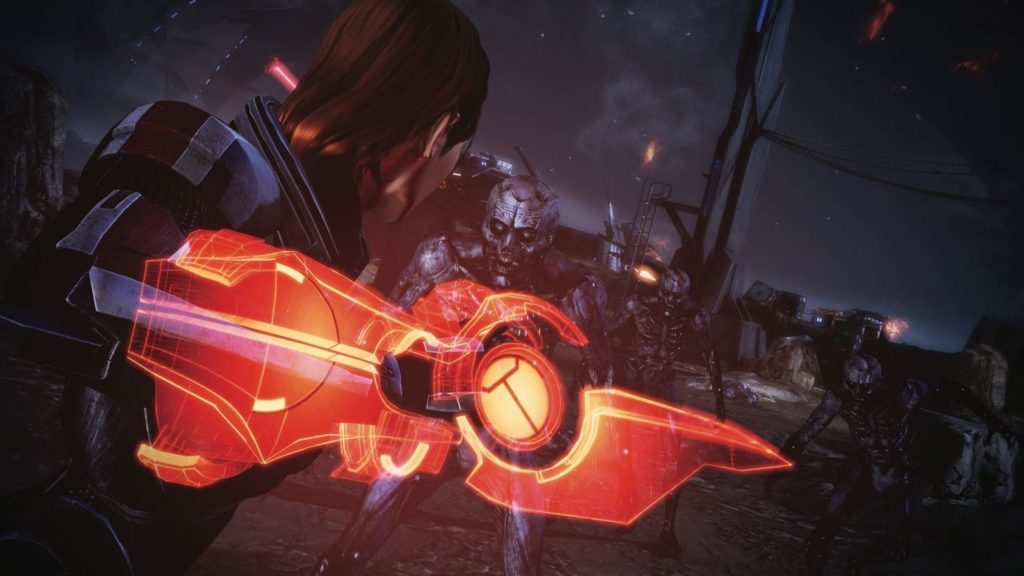
Mass Effect: a stunning franchise debut
Not that much is sub-par about any of the three games. For me, the first Mass Effect proved to be hugely familiar and comforting, although there were aspects of it which I thought it included, but in fact didn’t arrive until Mass Effect 2, such as the mining of planets. It has the assembled cast of alien characters, however – the vast majority of the game is spent getting them to join the crew – and it has a joyous innocence about it, with no real enemies beyond Saren and the Reapers, and no sign of the treacherous Cerberus.
The remastering applied to the first Mass Effect feels spot-on: it slightly improves its dodgy cover-system (although not to perfection) and mercifully renders the accursed Mako vastly less undriveable. Which is just as well, as I’d forgotten how many of its missions included Mako-driving. Not having to bother collecting ammo clips felt a bit weird, but was certainly convenient, while the Powers system felt somewhat undercooked and more peripheral than in the subsequent games.
Playing the original Mass Effect in the Legendary Edition also conveys a sense of how BioWare must have felt it had to take care when creating a franchise: although it does include the series’ legendary romancing, it lacks the next two games’ opportunities to indulge in virtual partying, for example. It’s a superb game, but leaves you feeling that BioWare didn’t yet quite feel ready to let itself loose in the Mass Effect universe it had begun to create. Which, of course, is completely understandable.
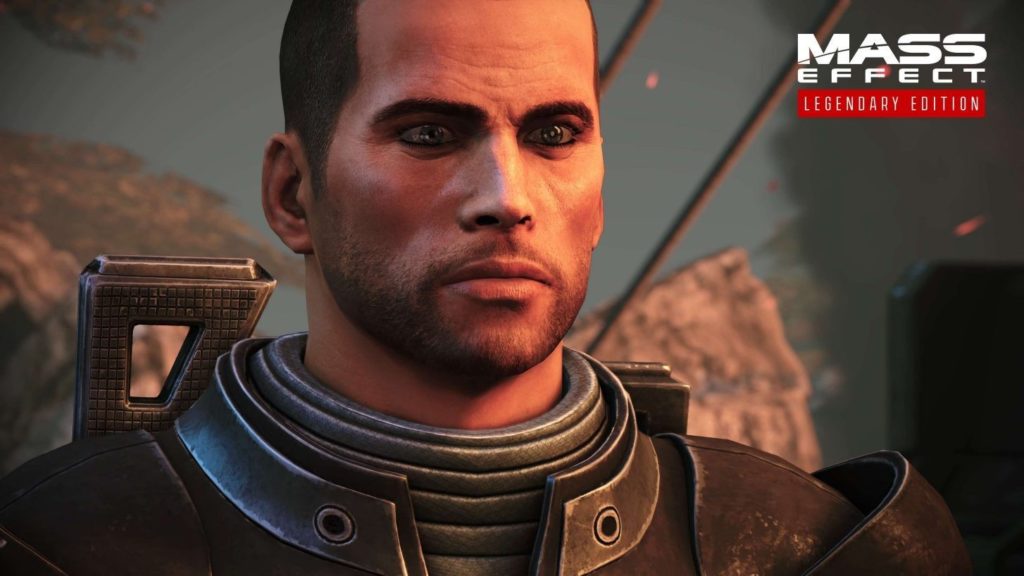
Mass Effect 2: a stone-cold classic
I can remember praising the original Mass Effect when it came out for its fully formed feel – its distinctive lore, solid cover-shooter gameplay, brilliant characterisations and clever framing of RPG mechanics in an action-gaming experience gelled perfectly into a new, and subsequently much-copied, form of game. But when you jump into Mass Effect 2 straight after finishing the first game, the original Mass Effect no longer feels anything like as fully formed as it did at the time.
That’s because Mass Effect 2 is, simply, one of the greatest games ever. It’s an object lesson in how to make a truly great sequel to a really good game. It kept all the best aspects of the first Mass Effect, sorted out the (very few) dodgy elements (the Mako, snapping to cover, the unlimited ammo which always felt a bit of a cheat) slotted them into a sprawling, monumental and brilliant story structure, then added a vast array of new, insanely addictive details which nobody would have anticipated having played the first game.
I’d forgotten how much sheer joy was to be had from seemingly trivial activities in Mass Effect 2, such as the thrill of finding a planet abundantly stocked with Element Zero and firing off drones to mine it (accompanied by one of the finest sound designs ever to grace a game), the stupid but bizarrely addictive puzzles required to hack doors and safes, or just the comfortable familiarity of hanging out in Afterlife, the scuzzy bar/club on Omega.
I struggled to find any single element of Mass Effect 2 which was less than perfect: the Powers skill tree offering a classic example. On top of that, playing Mass Effect 2 as part of the Legendary Edition offered instant, seamless access to all its DLC. Which wasn’t earth-shattering but was very solid indeed, bringing a new character, the mercenary Zaeed (who is a bit of a cock but makes useful cannon-fodder at the end of the game), and a number of missions which not only slotted nicely around the base ones but had implications that rolled over to Mass Effect 3, most notably the slightly controversial Clockwork Orange-referencing Overlord and Lair of the Shadow Broker.
Having the DLC in from the start put even more flesh on Mass Effect 2’s not inconsiderable bones, which was most welcome since even after all this time. I couldn’t tear myself away from it. It’s a work-wrecker of a game: so addictive that it won’t leave room in your life for anything else until you finish it.
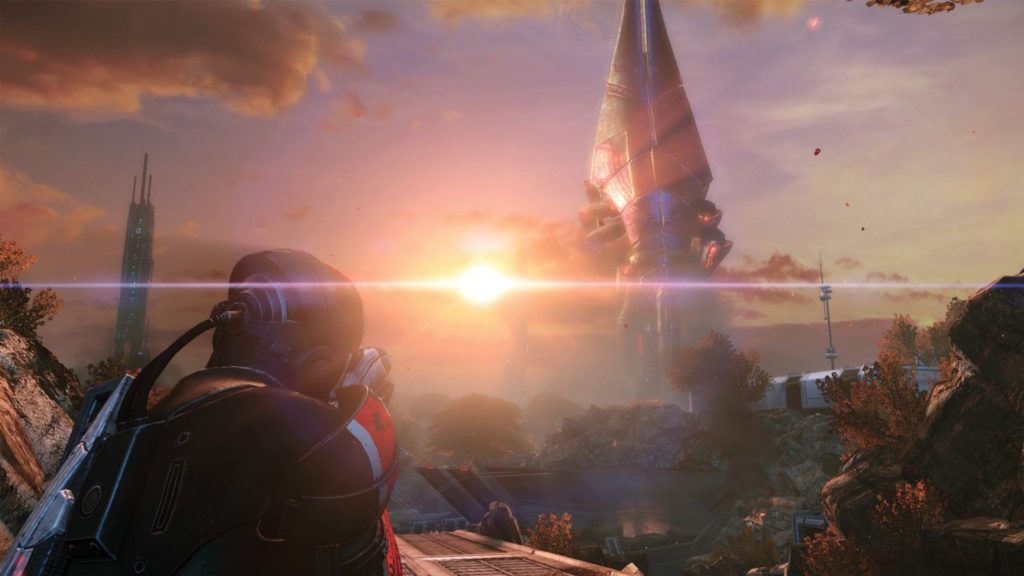
Mass Effect 3 – still brilliant, but annoying too
When Mass Effect 3 came out in 2012, we lavished it with praise. But viewed through the hindsight-filtered prism of the Legendary Edition, I wonder whether that was mainly because we were just pathetically grateful just to get another Mass Effect fix.
For if you look closely enough at Mass Effect 3, it’s possible to detect the early signs of BioWare’s decline. One thing becomes instantly obvious: between Mass Effect 2 and 3, BioWare lost its bottle somewhat. While there are a few elements of Mass Effect 3 that improve on its predecessor – the skill tree is at least more sensible and offers more choice, and the cover-snap is more precise – it is shot through with elements which appear to have been deliberately dumbed down.
Presumably that was the result of some misguided attempt to improve the franchise’s mainstream appeal, and attract gamers who were used to shooters but somehow couldn’t cope with the “complexity” of RPGs. But the whole exercise was completely unnecessary and smacked of a loss of nerve on BioWare’s behalf (or perhaps producer-level interference from EA) – Mass Effect 2 was one of the most mainstream and least complex RPGs ever made at the time.
Nevertheless, BioWare ripped out the door and safe-opening puzzles, as well as the planet-mining. The result is that, at first – when you pick it up in Legendary Edition after completing Mass Effect 2 –Mass Effect 3 feels blander than its predecessor, as though a chunk of its personality has been stripped out. So, its initial stages feel disappointing, and its emphasis on action above all else allows little room for the masterful ebb and flow which was such a glorious feature of the first two games.
However, once I stopped comparing Mass Effect 3 to its sublime predecessor, it grew on me. Its cover-shooter gameplay is exemplary, it’s very meaty, its storyline is great (until that disappointing ending, which had to be tweaked post-launch) and some fabulous DLC improves it further. After its somewhat sombre and humourless early stages, it lightens up noticeably. There’s particular fun to be had in the flash apartment Shepard acquires on the Citadel – indeed, after exploring Mass Effect 3’s new and interesting parts of the Citadel, you’re left wishing they could have been retroactively plugged into the first two games.
Mass Effect 3, then, can be accused of being unnecessarily dumbed down in certain respects but ultimately, it has enough quality to transcend such suggestions. Sure, you can view it as a bellwether for BioWare’s subsequent decline (and speculate about how much better it would have been had Ray Muzyka and Greg Zeschuk still been at the developer), but it’s still a majestically fine game that has rarely been bettered since its release.
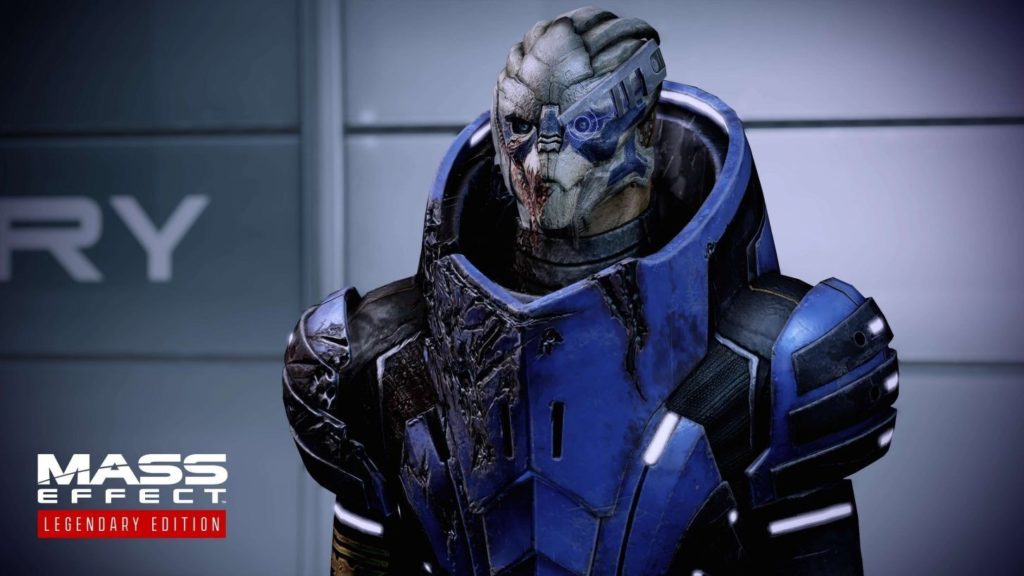
An irresistible package
Put three of the best games ever into a single, chronologically coherent package, complete with nearly all of the DLC they received after their respective releases, and you have something which is very special indeed. At the very least, Mass Effect Legendary Edition provides something like 100 hours of infernally addictive gameplay, wrapped around an impossibly long, sinuous and convoluted, yet memorable storyline.
That, alone, constitutes a monolithic slab of the very highest quality gaming which, realistically, is unlikely to be outdone even by impending blockbusters like Halo Infinite or Far Cry 6. But that isn’t even all there is to Mass Effect: Legendary Edition.
The presentation of the entire trilogy – developed over a period of roughly eight years, which is quite tight for three games of such magnitude – provides a fascinating insight into both the birth, blossoming and sustaining of a franchise, and the thought processes that shape a developer’s mindset (good and bad – you can see via Legendary Edition how franchise success can lead to certain areas of creative compromise) as they get stuck into a trilogy of games telling an overarching story.
No game released in 2021 – not even Halo Infinite – will offer so much of the best gameplay that money can buy as Mass Effect: Legendary Edition. Nor will any 2021 game provide such insight into the development process. That’s why I’ve already decided to deem Mass Effect: Legendary Edition my Game of the Year for 2021.
